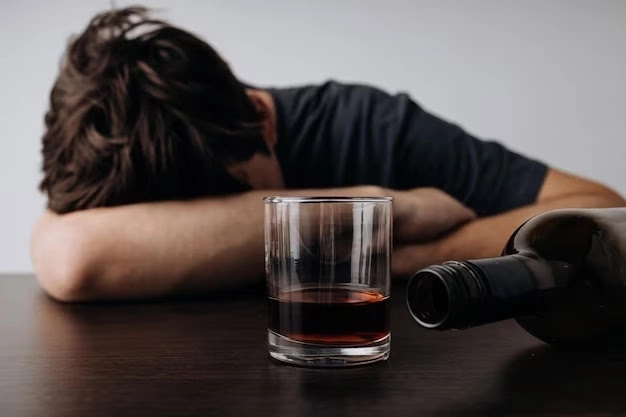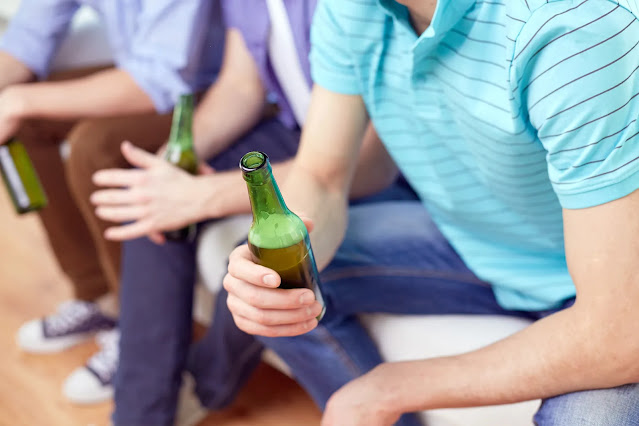Hey there! Let’s talk about something really important: how alcohol affects teens differently than adults. You’ve probably heard people say that teens shouldn’t drink alcohol, but do you know why? It’s not just a rule to follow – there’s science behind it!
How does alcohol affect teens differently than Adults?
To understand why and how alcohol affect teens, you first need to know a bit about brain development. The human brain doesn’t fully develop until around the mid-20s. The part of the brain responsible for decision-making, impulse control, and reasoning – the prefrontal cortex – is one of the last areas to mature.
During your teen years, your brain is still wiring itself to handle complex thoughts, emotions, and behaviors. This means that your brain is more vulnerable to damage during this period.
When alcohol enters the equation, it disrupts the brain’s natural development process. Drinking during your teenage years can have long-lasting effects on brain function, potentially making it harder to focus, remember things, and learn new skills. Essentially, alcohol can stunt the growth of your brain in key areas that are still in the process of developing.
Why Is This Dangerous?
You might be thinking, “Okay, so alcohol affects my brain. But why is that dangerous?”
Well, when alcohol affects your brain, it can make it harder for you to think clearly and make good decisions. For example, you might take risks you wouldn’t normally take, like driving drunk, getting into fights, or making other unsafe choices. These risky behaviors can lead to accidents, injuries, or worse.
And it’s not just about making risky choices in the moment. Drinking as a teen can also increase the chances of developing alcohol addiction later in life. That’s because your brain is more vulnerable when it’s still developing, and regular drinking can cause long-lasting changes in how your brain works.

Why Is This Dangerous?
The immediate effects of alcohol are pretty well known: it can make you feel more relaxed, less inhibited, and sometimes dizzy or lightheaded. However, these short-term effects can be misleading, as the real danger lies in what alcohol does to a developing brain and body over time.
In the short term, alcohol impairs your ability to think clearly and make decisions. You’re more likely to engage in risky behaviors, such as driving under the influence, having unprotected sex, or getting into fights. These risky behaviors can lead to accidents, injuries, or even legal trouble.
In the long term, regular drinking during the teenage years can lead to changes in brain structure and function. Studies have shown that teens who drink regularly may have smaller prefrontal cortexes and hippocampi (the part of the brain involved in learning and memory) compared to those who don’t drink. These changes can lead to problems with memory, attention, and decision-making later in life.
Moreover, because the teenage brain is so adaptable and responsive to new experiences, it’s more prone to developing addictive behaviors.
Drinking alcohol as a teen increases the risk of developing alcohol use disorder (AUD) later in life. The brain essentially “learns” to depend on alcohol to feel good or cope with stress, leading to a cycle of addiction.
Physical Health Risks for Teens
Aside from the impact on your brain, alcohol can also have serious effects on your physical health. Teens are still growing, and alcohol can interfere with that growth in a number of ways.
One of the main organs affected by alcohol is the liver. The liver is responsible for processing and breaking down alcohol, but because teens’ bodies are still developing, their livers are less efficient at this task compared to adults.
This means that alcohol stays in a teen’s system longer, leading to more severe effects on the body. Over time, excessive drinking can lead to liver damage or even liver disease.
Alcohol also affects the heart. It can cause high blood pressure, irregular heartbeats, and weaken the heart muscle. For teens, whose hearts are still developing, these effects can be even more dangerous and could lead to long-term health problems.
Additionally, alcohol weakens the immune system. This makes it harder for your body to fight off infections and illnesses. Teens who drink regularly may find themselves getting sick more often and taking longer to recover.
Another important point to consider is that alcohol can affect your sleep patterns. Drinking alcohol disrupts the quality of sleep, which is crucial for teens who are growing and need rest to support brain and body development.
Poor sleep can lead to a whole host of issues, including problems with mood, concentration, and overall physical health.

What About the Social Side?
Alcohol is often seen as a way to socialize, especially in settings like parties or gatherings. But drinking as a teen can actually have negative effects on your social life and relationships.
For one, alcohol can lower your inhibitions, leading you to say or do things you wouldn’t normally do. This can strain friendships, cause conflicts, and lead to embarrassing or regrettable situations. You might think alcohol helps you fit in or feel more confident, but it can also make social situations more complicated and even damage your reputation.
Peer pressure is another big issue. Teens often feel the pressure to drink because “everyone else is doing it,” but it’s important to remember that not everyone is drinking, and you have the power to make your own choices.
Just because alcohol is present at social events doesn’t mean you have to participate. Learning to stand by your decisions and prioritize your health is a valuable skill that will benefit you throughout life.
Mental Health and Alcohol
Alcohol doesn’t just affect your physical health; it can also have a significant impact on your mental health. While some teens may drink to relieve stress, anxiety, or sadness, alcohol can actually make these feelings worse.
It’s a depressant, which means it slows down the brain’s activity and can exacerbate feelings of depression or anxiety over time.For teens who already struggle with mental health issues, drinking alcohol can be particularly dangerous.
It can interfere with medications, make symptoms worse, and increase the risk of self-harm or suicide. Teens who drink are also more likely to experience mood swings, irritability, and emotional instability.

The Importance of Making Smart Choices
So, what can you take away from all of this? The bottom line is that alcohol affects teens differently than adults, and those differences can be dangerous. Your brain and body are still developing, and drinking alcohol can interfere with that development in ways that have lasting effects.
It’s important to understand that saying no to alcohol isn’t just about following rules – it’s about protecting your health and future. You have your whole life ahead of you, and making smart choices now will set you up for success in the long run.
If you ever find yourself in a situation where you’re being pressured to drink, remember that it’s okay to say no. Surround yourself with friends who respect your choices and look out for your well-being.
And if you’re ever unsure or need someone to talk to, reach out to a trusted adult, whether it’s a parent, teacher, or counselor.
Conclusion: Final Thoughts
Alcohol can have serious consequences for teens because your brain and body are still growing. The risks aren’t just short-term, like getting into trouble or making a bad decision. The effects of drinking can last far into the future, affecting your health, mental well-being, and even your ability to achieve your goals.
By understanding how alcohol affects you differently than adults, you can make informed decisions that prioritize your health and happiness. So, think twice before drinking, and remember – your health is worth protecting.
Frequently Asked Questions(FAQs):
- Peer Pressure: Teens often feel pressured to fit in with their friends, and drinking may seem like a way to be accepted by their peers.
- Curiosity: Many teens are curious about alcohol and want to see what it feels like to drink.
- Stress or Emotional Issues: Some teens turn to alcohol as a way to cope with stress, anxiety, or other emotional problems.
- Media Influence: Movies, TV shows, and social media often glamorize drinking, making it seem like a normal or cool thing to do.
You might want to read: https://thoughtlessinsights.com/kolkata-doctor-rape-murder-case-everything-we-know-so-far/
